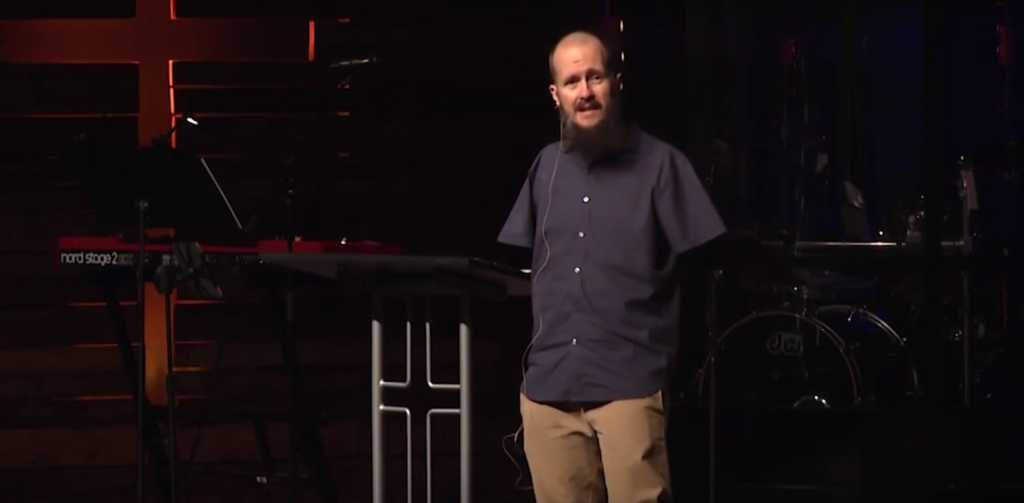Can you really fathom how difficult, how frustrating, and how challenging it would be to go through life without any arms? “That’s my life,” wrote Daniel Ritchie at Desiring God. “Every day is an exercise in the unusual, and the world recognizes that. I get stared at and hear rude comments on an almost daily basis.”
Despite his physical handicap, Daniel is convinced that he has been fearfully and wonderfully made by an almighty God who cares about him deeply. “God rescued and redeemed me at the age of 15, and he slowly began to show me how precious my life is in spite of my disability,” he explained.
Ritchie wants to make something clear through his testimony of living a faithful Christian life through the struggle of his disability – every single life matters, and every person has value. “The beautiful reality is that God has given humans value by creating them in his own image (Genesis 1:27),” he wrote. “May we promote and defend the value of every human life, regardless of race, religion, or political background. May we unashamedly declare the truth of our great God, who gives purpose to every human life.”
Daniel explained how he has wrestled with the accusatory thoughts that often surround being “different.” He has even entertained the lie that somehow his disability is his own fault. But every time, he is led back to the scriptures, and he is inspired by the words and teachings of Jesus. One of his favorite passages is found in John 1:9-3.
“As [Jesus] passed by, he saw a man blind from birth. And his disciples asked him, “Rabbi, who sinned, this man or his parents, that he was born blind?” Jesus answered, “It was not that this man sinned, or his parents, but that the works of God might be displayed in him.” (John 9:1–3).”
We can glorify God in a powerful way through our physical disabilities. “God takes great care to fashion every person who has ever lived,” Daniel wrote. “He makes no mistakes. He does not let a single detail escape his watchful eye. He has knit together every person into the tapestry we see today (Psalm 139:13). Just because someone is born with a mental or physical disability does not mean God missed a stitch.”
A new year means new opportunities. One of the most exciting opportunities this year is that my first book will release in just a few months.
I cannot wait to share my story & God's word and gospel. #SoliDeoGloria pic.twitter.com/7reoKgQ6al
— Daniel Ritchie (@DanielRitchie) January 1, 2018
Absolutely no-one is worthless – this must always be esteemed as a central tenet of the Christian faith. We must develop God’s eyes for the broken, the disabled, the mentally unwell. He loves them so dearly, and there is a powerful purpose for their lives.
“Blindness, deafness, amputation, and mental disability do not detract from any person’s worth,” Ritchie continued. “The church must be faithful to proclaim and defend that every unborn child, regardless of disability, has a right to life. Every unborn child can display the works of God.”
But are we putting our theology into practice? Are we practicing that which we preach? Christians should be on the frontline of caring for the disabled and campaigning for their wellbeing; we must implore others to show them respect and treat them with the utmost dignity – they are children of God and highly valued by Christ himself. Oh, and they have a central role to play in the life of the Church; to think otherwise is to be extremely misguided.
At least I know if @benzirkle breaks both arms he won't starve to death. #TalentedToes pic.twitter.com/lr3BE1BnDa
— Daniel Ritchie (@DanielRitchie) September 12, 2015
“How many people in our churches do we put off to the side (overtly or subtly) because they are paralyzed, blind, or autistic?” asked Ritchie. “If they have God-given worth, let’s do whatever it takes to find ways to serve them in the church and give them opportunities to serve as the church. They are just as much called to go and make disciples as any able-bodied person.”
Indeed, perhaps they are even more well-equipped to share the good news of the Gospel than someone of able-body.
“Affliction has allowed many of them to taste the grace of God in ways few of us can understand. God gives us comfort in our hurt so that we can give that same comfort to others (2 Corinthians 1:4). There’s a sweet understanding of comfort and grace when someone has been enveloped in hurt, and yet can still sing of the mercy of God,” Ritchie declared.
“So may we labor to tell all people of their preciousness, and may we give them every chance to display the works of God.”



